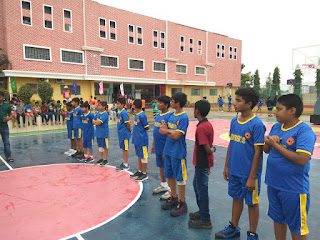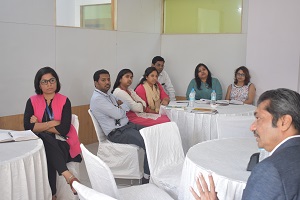The capacity to deeply understand, appreciate and create music is one of the finest abilities we possess as human beings. The amazing thing about this ability is that it is not just innate, but can also be developed throughout the course of an individual’s lifetime. Research suggests that the early years are foundational in developing a child’s flair for music, and some even go as far as to say that foetuses respond to music while still in the womb! Whatever the case, parents can do a lot to nurture their child’s musical ability. Here are some ideas we think you can try out:
1) Exposure to Classical Music
It’s a well-known fact that both western and indian classical music improve focus and cognition among other aspects. Giving your child a taste of classical music, instills in them a deep sense of awareness for rhythm and musical notes. Choose from a selection from maestros like Mozart and Beethoven, as well as from classical music from India, such as masters like Ravi Shanker and Bismillah Khan, among other legends.
2) Music from across Cultures
Different cultures vary in their range of musical techniques, instruments used and notational systems. Choosing music from across cultures broadens your child’s musical repertoire and ultimately, musical intelligence. Djembe beats from Africa, folksongs from Russia, European Gnossiennes and Chinese ‘Guzheng’ music, can help your child develop a unqiue appreciation for music from across borders. Do also experiment your child to explore music from different cultures within India, with a special focus on the ancient music of your particular culture.
3) Musical Games
Musical Games are great for helping children of all ages develop their musical intelligence. Playing games that involve beats, rhythms and singing can develop your child’s ability to identify and eventually create, their own music. Simple games like identifying chords, creating musical patterns, clapping to rhythms and continuing tunes can help your child make the leap from understanding music to creating their own.
4) Playing a Musical Instrument
The best international schools in Hyderabad offer music lessons for children. What sets schools like DRS International School apart is the individual attention and training given to children who play different instruments. We have dedicated studios and teachers for Guitars, Keyboards, Vocal Music etc to give students specialized coaching in the musical instrument they have understaken to learn. You can supplement this at home, by encouraging your child to practise playing the instrument at home, at a specific time everyday.
These tips help your child improve their musical intelligence, ability to read and create their own music and nurtures a life-long love for music overall. Do try them out and watch your little musician blossom.
1) Exposure to Classical Music
It’s a well-known fact that both western and indian classical music improve focus and cognition among other aspects. Giving your child a taste of classical music, instills in them a deep sense of awareness for rhythm and musical notes. Choose from a selection from maestros like Mozart and Beethoven, as well as from classical music from India, such as masters like Ravi Shanker and Bismillah Khan, among other legends.
2) Music from across Cultures
Different cultures vary in their range of musical techniques, instruments used and notational systems. Choosing music from across cultures broadens your child’s musical repertoire and ultimately, musical intelligence. Djembe beats from Africa, folksongs from Russia, European Gnossiennes and Chinese ‘Guzheng’ music, can help your child develop a unqiue appreciation for music from across borders. Do also experiment your child to explore music from different cultures within India, with a special focus on the ancient music of your particular culture.
3) Musical Games
Musical Games are great for helping children of all ages develop their musical intelligence. Playing games that involve beats, rhythms and singing can develop your child’s ability to identify and eventually create, their own music. Simple games like identifying chords, creating musical patterns, clapping to rhythms and continuing tunes can help your child make the leap from understanding music to creating their own.
4) Playing a Musical Instrument
The best international schools in Hyderabad offer music lessons for children. What sets schools like DRS International School apart is the individual attention and training given to children who play different instruments. We have dedicated studios and teachers for Guitars, Keyboards, Vocal Music etc to give students specialized coaching in the musical instrument they have understaken to learn. You can supplement this at home, by encouraging your child to practise playing the instrument at home, at a specific time everyday.
These tips help your child improve their musical intelligence, ability to read and create their own music and nurtures a life-long love for music overall. Do try them out and watch your little musician blossom.




















































